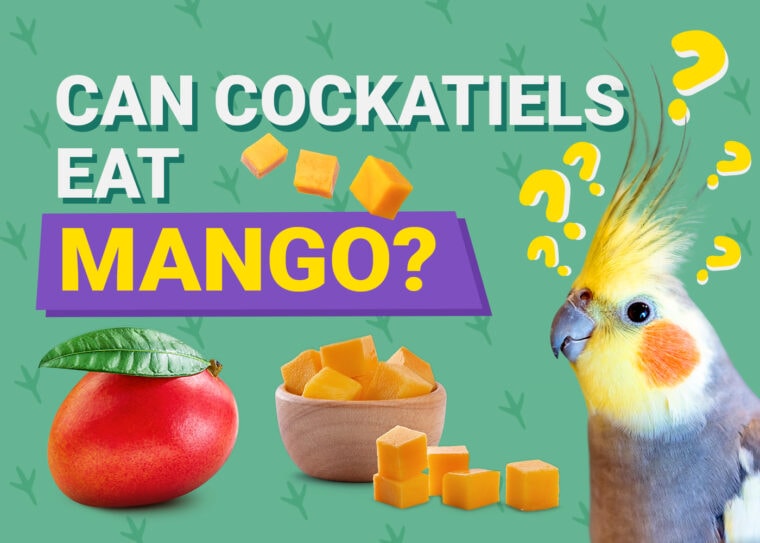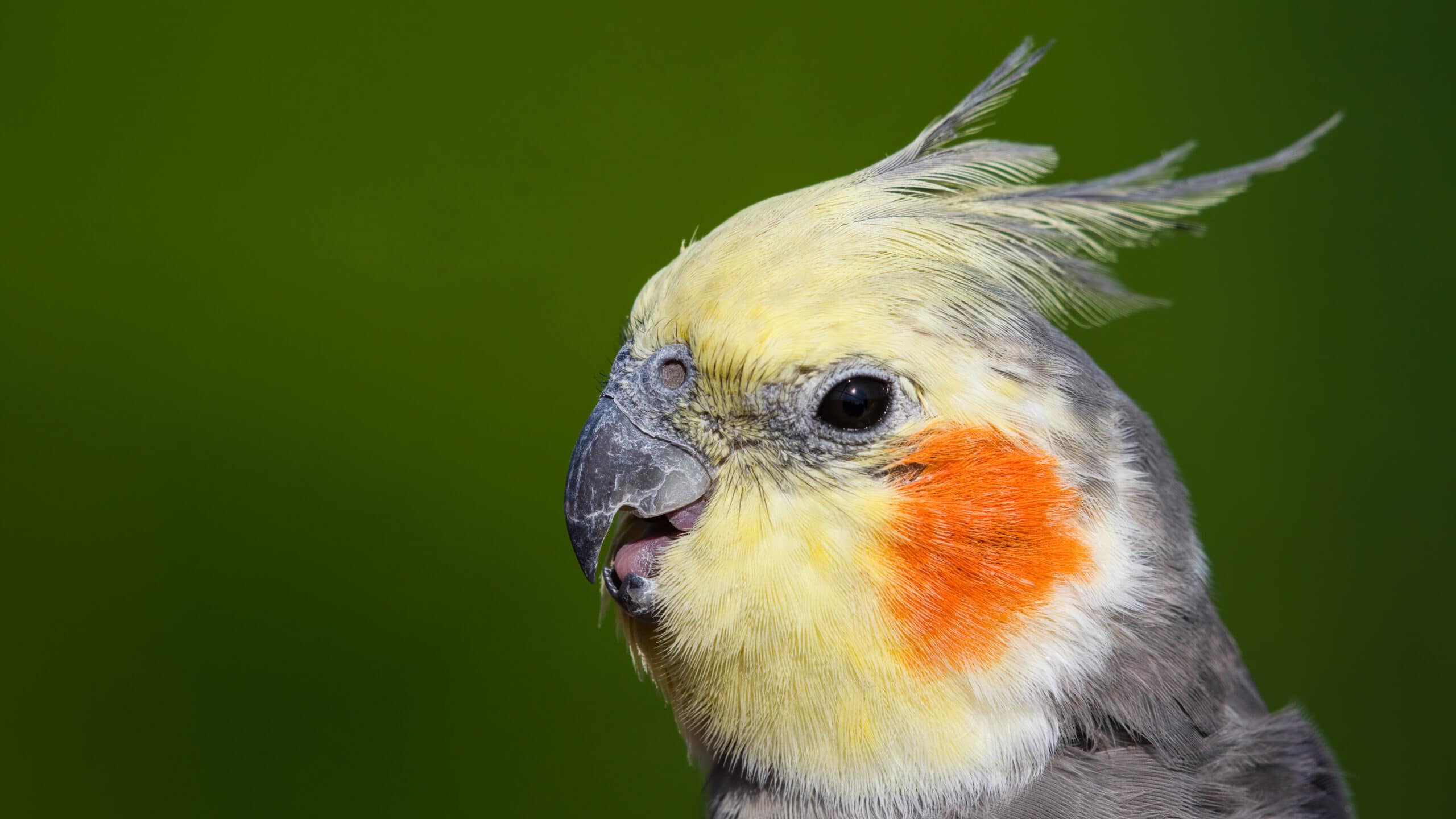
When finding a social, cheerful, and relatively quiet pet bird, cockatiels are a perfect choice. Their ease of care, comical antics, color patterns and crest, and ability to mimic whistles and speech further add to their appeal. Despite being easy to care for, their diet does require careful consideration.
Like many parrots, cockatiels will show interest in most fruits and vegetables. Knowing if such foods are safe for your cockatiels is important as a pet owner. Thankfully, most fruits (both tropical and temperate) are great additions to their diet. Mangos, a popular tropical fruit, are safe for cockatiels to consume. Read on as we further explore this fruit and a cockatiel’s diet.
Pet Cockatiel Nutrition
Like most parrots, a cockatiel’s diet in the wild is much different than that of pet cockatiels. Wild cockatiels are foragers that consistently travel in a home range, flying for long distances every day and eating a highly varied, mostly seed-dominated diet. They round off this diet with the occasional shrubs, vegetation, fruit, and insects. However, they’re mostly seed eaters with a very high metabolism.
As pets, their lives are much different. Not needing to fly away from predators gives our pet cockatiels a much more relaxed lifestyle. With this lifestyle comes the inherent issue that the seeds their wild counterparts consume are no longer considered safe for them when they’re kept as pets. First, it’s almost impossible to source all the different kinds of seeds wild cockatiels eat for a pet cockatiel’s diet; wild cockatiels eat at least 60 different types of seeds. Second, the soil quality in which the seeds are grown can vary. A cockatiel kept on a seed-only diet might suffer health issues down the line, such as iodine deficiency (leading to goiter) or obesity (because seeds are very calorie-dense).
Fortunately, advancements in research have circumvented this conundrum. Commercial pellets have been found to be a reasonable starting point for almost all parrots that are kept as pets. Their nutrition is easier to control than that of seeds, they’re less fattening, and they’re more nutritionally balanced.
However, there’s a catch. The unique nutritional needs of parrots render pellets ineffective as a meal when served on their own. Though they’re able to form a good bulk of your cockatiel’s diet, it is important to incorporate other vegetables, nuts, seeds, pulses, and fruits into their diet. These can be arranged in a pyramid for easy visual appreciation.
Mangos & Cockatiels
Mangos are fruits, so they should not form the bulk of your cockatiel’s diet. Nonetheless, fruits are necessary for your cockatiel and shouldn’t be ignored just because of their small share in their diet.
Incorporating mangoes into your cockatiel’s diet is relatively easy. Freshly washed, peeled, and de-pitted mangoes can be offered to your cockatiel in small quantities as part of their daily fruit quota. It’s best to rotate different fruits around for your cockatiel’s diet; monotony with fruits isn’t recommended. It’s best to remove any uneaten mango after 2–3 hours of it being left out, as it may quickly form sludge in your cockatiel’s food dish if left out longer. In addition, the dish in which mangoes are served must be thoroughly cleaned. Otherwise, the sludge may perpetuate harmful bacterial growth, which could cause health issues for your cockatiel.
Like all fruits, mangoes will offer your parrots hydration, some vitamins and minerals, and carbohydrates in the form of fruit sugars. Interestingly, while humans tout the vitamin C content of most fruits, this isn’t a selling point for including fruit in a parrot’s diet, as they make their own vitamin C.

Raw Mangos & Cockatiels
Interestingly, raw mangos are sometimes sold for use in human foods (often to be pickled or preserved). The good news is that raw mangos are safe for cockatiel consumption. However, their flavor might not appeal to all cockatiels, and their toughness might prove slightly challenging (though this might not be a major hindrance for some individuals). Overall, though safe, it’s best not to obsess over offering your cockatiel raw mangos.
Pickled Mangos & Cockatiels
Mangoes are a popular choice when it comes to pickling. The pickling process encases the fruit in a mixture of select spices and herbs and results in a (usually) bitter-tasting piece of mango with a very long shelf life. Pickled mangoes are a delicacy in many parts of the world; however, they aren’t considered safe for cockatiels. The pickling process adds many oils and seasonings to the fruit, which are unsafe for cockatiels to consume. Therefore, you should not offer your cockatiels picked mangoes. Other picked fruits (such as lime, lemon, and some chilis) are also not recommended for your cockatiel.
Final Words
Adding fruits to a cockatiel’s diet isn’t a task that should be taken lightly, as it is mandatory for their care in captivity. Mangoes are a safe fruit you can incorporate into your cockatiel’s diet. Ripe mangoes are preferred to raw variants. Pickled mangoes are used as a condiment for human cuisine but aren’t considered safe for cockatiels to consume.
To learn more about which fruits and vegetables are safe for your cockatiels to consume, it’s best to consult with your veterinarian.
Featured Image Credit: toodlingstudio, Pixabay








